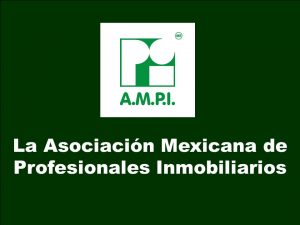Frequently Asked Questions and Answers
Would you purchase land in your hometown that did not have a title? Sometimes people are so impressed with the natural beauty and climate of Mexico that they “throw caution to the wind” and make careless mistakes.
This has been referred to as “Margarita Fever.” Buy smart and buy secure by being an educated buyer.
Owning Property in Mexico!
1. Can you really own property in Mexico?
Yes, absolutely.
In fact, foreigners are not only allowed to legally purchase property in Mexico, the Mexican government has gone to great lengths to make it safe and simple.
2. How is it done?
You will own your slice of paradise in one of two ways: either through a Fideicomiso (FEE-day-coh-MEE-soh) which is a bank-held trust, or through a Mexican corporation.
Option 1 - Buying through a Bank Trust "Fideicomiso"
3. What is a Fideicomiso?
A fideicomiso is a real estate trust held on your behalf by a Mexican bank of your choosing (Scotia Bank, HSBC [largest bank in the world], Banamex [Citigroup], Santander [largest Spanish bank], etc.). The bank acts as the Trustee, and you and those you designate are the Beneficiaries of the trust. As the beneficiary of the trust, you maintain complete control over it, retaining the use of the property and making all investment decisions. This is not a lease, it is equivalent to a Living Trust in the US. A fideicomiso bestows upon the Beneficiary of the Trust (you) absolute and irrevocable control over the property: to enjoy, lease, improve, mortgage, sell, inherit and will.
Simply stated, your property is placed in a trust that you own to be administered by a Mexican bank on your behalf.
4. Why is a Fideicomiso necessary?
The purpose of the fideicomiso is to allow foreigners to buy prime Mexico real estate inside the «restricted zone,» and ensure a safe and secure transaction. The «restricted zone» is any land within 31miles (50 km) of the coastline and 62 miles (100 km) of the borders. The Mexican constitution, when created, was designed to protect their land and prevent the kind of massive land loss they had endured through their history. Rather than amend their constitution, Mexico created and added the fideicomiso to encourage foreign investment in the highly desirable areas, particularly along the coastline. Residential properties outside of the restricted zone can be acquired directly by foreigners without the need for a bank trust, although some buyers opt to use it.
5. Is the Fideicomiso an asset of the bank?
No. Your trust is not an asset of the bank; they are merely the stewards of the trust. You and those you designate are the beneficiaries. The trust to your Mexico real estate property is held by the bank for the beneficiary (you) and is not considered an asset of the bank therefore not exposed to any legal action that the bank might find itself in. The trust is the beneficiary’s property.
6. For how long is the Fideicomiso good?
The Trust is initially established for a period of 50 years and can be renewed at any time by a very simple form and a nominal fee. The trust is set in 50-year increments guaranteed renewable for perpetuity. The current cost is about $500 USD
Can the Government take my property?
7. Can the Government take my Property?
Foreigners often worry about their land being expropriated by the Mexican government. Under the North American Free Trade Agreement, NAFTA, Mexico may not directly or indirectly, expropriate property except for a public purpose (i.e. building roads). And only through a legal condemnation proceeding will this be possible. In the rare case where it is necessary to expropriate land, the government will pay swift and fair market compensation to the owner, together with accrued interest. This is the same process known as Eminent Domain in the USA, Compulsory Purchase in the UK or Expropriation in Canada.
Insider Tip: If you have ever heard one of those stories about someone getting their property taken by the Mexican government, it is because the unfortunate person bought Ejido land, which is untitled land that only a Mexican national can legally own. Ejido land is the only land in Mexico that is without title.
Option 2 - Buying through a Corporation
8. Why buy through a Corporation?
Many investors choose to purchase property though a corporation if the intent is to conduct the investment as a business. This would be the case in situations such as buying and selling land, renting their property or when owning more than one property.
9. What are the Types of Mexican Corporations?
There are several different types of Mexican corporations, however the two most common are a limited liability corporation (LLC) and a limited liability partnership (LLP). Choosing which type of corporation to set up is important for tax purposes in both the US and Mexico, and you should speak with an attorney or accountant on both sides of the border to understand the benefits and costs each one entails. Making sure the choice is made correctly from the beginning will save you time and money.
10. How does buying through a Corporation work?
Ownership of property in Mexico is possible through the establishment of a Mexican corporation. As of 1995 foreigners can fully own, operate and administer Mexican corporations. A foreign corporation in Mexico requires two or more individual investors, who combined, control 100% of the corporation. None of the corporation’s investors can be Mexican. Once your Mexican corporation is formed, it has the legal capacity to acquire property anywhere in Mexico, including the restricted zone. Through a corporation, foreign owners acquire the right of domain, in addition to possession and benefit. The property is owned with the same rights as if it were a Mexican entity. There are no investment restrictions on foreign-owned Mexican corporations aimed at buying and developing property.
11. What is the cost to set up a Corporation?
Typically, an attorney will charge $1,500 USD to set up the corporation. Additionally, there is a fee of approximately $100 USD per month for accounting of the corporation.
Who Represents and Protects my Interests?
12. Who represents and protects my interests?
There are 4 parties involved in a Mexico real estate transaction inside the restricted zone. All are helpful in their respective areas and each serves a purpose in assisting you with your real estate transaction.
- Real Estate Company
- Buyer’s Attorney
- Bank (if buying through a Fideicomiso)
- Notary
The process of buying property in Mexico will inevitably have differences from what you may be accustomed to. That is why having the right people on your side is so important. Not only will it make all the difference in your experience, having a team of experienced, knowledgeable agents dedicated to guiding you through each step, ensures that you buy smart and buy secure. We at Investment Properties Mexico pride ourselves on the personalized dedication we love to provide our clients. More often than not, we develop great friendships with our clients as we take them through to realizing their dream.
We recommend using an attorney because we believe it is in your best interest. An attorney will represent you and protect all your legal transactions. The attorney will draw up contracts and review the terms and conditions of the sale. Legally, only a licensed Mexican attorney should provide advice on the laws. Foreign attorneys are not licensed to practice law in Mexico and should not give advice on Mexican law.
Insider Tip: Buyers Beware – A common story in Mexico: sometimes well-intentioned, but more likely unscrupulous people, will promise a better deal saying they have a friend or relative who can offer discounted costs and save you money. This is NEVER the case. Allowing inappropriate people to become involved opens the door to improper documentation. Having to go back and fix what was done incorrectly will end up costing you thousands of dollars as opposed to having an attorney represent and protect your interests from the beginning.
In addition to representing your best interests and protecting your legal transactions, an attorney can be very helpful in saving you money. This is because attorneys are involved in many of the different transactions necessary and have contacts with banks, notaries and the Mexican government. They are aware of the most competitive costs and fees involved and make sure the buyer is given the best possible prices.
You will also receive your attorney’s advice on legal options to be sure no opportunities are missed, such as tax planning, closing costs that should be paid by the seller and ways of taking title. Very often one piece of good advice can save buyers thousands of dollars in tax or other savings when the buyer eventually decides to sell the property.
A Mexican Notary (Notario Publico) is a licensed attorney, certified by the state and Federal government to act as an official and unbiased representative of the government of Mexico. A Mexican Notary is very similar to a notary in Canada and has far greater responsibility than a notary in the US. A Mexican Notary has passed stringent exams required by the Mexican government and is a government official. They provide strict security of original records and documents and they record the documents with the Public Registry of Property. A Notary’s role is taken very seriously in Mexico in that the Notary could be held liable in both civil and criminal terms.
The notary performs a variety of tasks including the authentication of legal documents, the calculation of capital gains tax and is responsible for ratifying ALL real estate transactions in Mexico. Any real estate transaction not ratified before a notary and duly recorded in the Public Registry is considered invalid and not enforceable.
In a real estate transaction, the notary is equally responsible to the buyer and the seller and ultimately responsible to the Mexican government. Their job is to ensure the legality of the transfer of title, to calculate and retain the seller’s capital gains tax on behalf of the government, collect the purchaser’s acquisition tax and pay it to the Department of Foreign Affairs, coordinate appraisals, certificates of no liens, certificates of no debt and request all corresponding permits. After the closing, the Notary must record the transaction at the Public Registry and the Tax (Cadastral) Office. This role is taken very seriously in Mexico in that the Notary could be held liable in both civil and criminal terms.
The Mexican notary is capable and legally authorized to carry out the transaction. However, we recommend also using an attorney to represent all your interests and protect your legal transactions.
The Trustee Bank is the Mexican bank authorized to act as Trustee. The Trustee Bank must be a Mexican registered financial institution with an established trust department. As a buyer, you have the right to select any qualified bank (Scotia Bank, HSBC [largest bank in the world], Banamex [Citigroup], Santander [largest Spanish bank], etc.). The bank ensures that the closing is legal and appropriate. They will issue a trust for the real estate for your sole use. The Bank Trustee is prohibited by Mexican law from transferring ownership of the property, changing the beneficiary rights or doing anything regarding the property without your written instructions. Having a major bank looking out for your interest is yet another added layer of protection for the buyer.
Yes, absolutely. Mexican banks have government protection against bankruptcy. The trust is guaranteed indirectly by the government.
Properties that are held in trust are not assets of the bank. In the rare case that the Mexican bank goes into financial difficulty, the property is transferred to another Trustee Bank. The new Trustee Bank will take care of the existing trust. These are federally imposed laws.
Title Insurance - USA Residents Only
13. Do I need Title Insurance?
Title insurance has been available in Mexico since 1993 and its purchase is optional. Because Americans are used to having Title Insurance as part of the US real estate transaction, they feel reassured by having it. It is considered an insurance policy for property ownership and a title policy is the only monetary indemnification a buyer can obtain for property ownership. Similar to a US contract of indemnity, it guarantees that the property is free and clear of any claims, judgments, liens or other legal issues. Title insurance is an extra assururance the ownership rights are held by a Fideicomiso. Your attorney and the notary also both verify that the title is free of any encumbrances.
14. Who do we work with for Title Insurance?
Riviera Maya Global works with both First American Title Company and Stewart Title Latin America, to handle all of our title work and protect you. Whether you use First American, or Stewart Title Latin America, you can rest assured that they will support and represent you and any potential wrongful claims to your new Mexico real estate property purchase. First American Title was the first company in the United States to issue Title Insurance on Mexican soil.
15. What are the steps to obtaining Title Insurance?
There are 3 steps to obtaining Title Insurance:
- 1. A 30% deposit of the Title Insurance Policy account is made and the buyer is issued a «Title Commitment.»
- 2. There is a waiting period of 60 – 90 days for the city to record the title.
- 3. The remaining 70% balance is paid and the buyer is issued the Title Insurance Policy.
Closing Costs
16. What are the Total Closing Costs?
Total Closing Costs including: taxes, Notario fees, setting up the escrow, appraisal fees, origination fee, application, establishing the trust, obtaining the SRE Permit will cost around 5% – 7% of the sale’s price.
If you have been approved for financing and choose to mortgage your property, the closing costs will be closer to 7% – 10% of the sale’s price. 95% of real estate transactions in Mexico have typically been purchased with cash, but the option for a Mexico mortgage loan, being a fairly recent addition, has become increasingly popular.
- The buyer’s fees include the following:
- 2% acquisition fee
- 1% recording fee
- 1% notary fee
- $3,000 USD attorney fee
Buying through a Trust
- $1,500 set up fee
- $500 registration fee
- $500 annual fee
Buying through a Corporation
- $1,500 set up fee
- $100 monthly fee
Mayan Land
17. What is Mayan land?
Mayan land has been described by some as the world’s largest untapped real estate market. It’s available, it’s undervalued, and it can be safely purchased with qualified legal assistance.
Forward thinking investors realize that the Mayan land sector is positioned for prosperity and abundant growth. Its location is perfect; its infrastructure is supportive, and it can be safely purchased at a fraction of its value.
While most investors understand that investing in property is a sure way to build wealth, most buy property at retail prices then wait for capital growth. However, Riviera Maya Global is offering investors the opportunity to purchase land direct from the Mayans at wholesale prices and lock in immediate profits.
The entitlement process is a simple five stage procedure that once in motion just takes time to complete. The first stage is called PROCEDE and the entire entitlement process takes from 24 – 60 months. Of course, the earlier in the process you purchase, the better the pricing.
The great thing is that once the entitlement process begins, the Mexican government is legally obligated to survey the land and oversee the entire process. They assign the land and issue certificates which can then be recorded at the public registry when the owners are ready to do so.
Savvy investors realize that investing in Mayan land is safe, and is a unique opportunity to purchase land at local Mayan prices.







